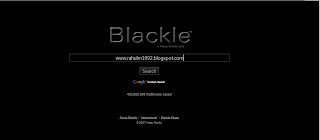
Google Knol
Knol is a project planned by Google for user-generated articles on topics ranging from "scientific concepts, to medical information, from geographical and historical, to entertainment, from product information, to how-to-fix-it instructions." It was announced on December 13, 2007. Knol pages are "meant to be the first thing someone who searches for this topic for the first time will want to read", according to Udi Manber, a Vice President of Engineering at Google. The term knol, coined by Google to mean a "unit of knowledge", refers to both the project and an article in the project. The site has been seen by many as Google's attempt to compete with Wikipedia.
The site is currently in private beta, and requests to create "knols" are by invitation only.
Format
Each knol article will be written by a single author, and other users can edit it only with permission from the author. Readers may rate or comment on the articles. There can also be multiple articles for the same topic, each written by a different author. Google "[believes] that knowing who wrote what will significantly help users make better use of web content." Manber said that Google hopes "knols will include the opinions and points of view of the authors who will put their reputation on the line" and that the authors will be able to decide whether advertisements will appear on their knols, and that if there are ads, a "substantial revenue share from the proceeds of those ads" will be given to authors. While it is not yet known if authors are allowed to run ads from companies other than Google, according to Sullivan, Manber said it is a possibility. Manber also writes that "Google will not serve as an editor in any way, and will not bless any content. All editorial responsibilities and control will rest with the authors."
Google Blackle
Blackle is a Google search engine developed by Heap Media Australia
The principle behind Blackle is based on the fact that the display of different colours consumes different amounts of energy on computer monitors. The creators of Blackle cite a 2002 study from Roberson, who tested a variety of CRT and LCD monitors and found that an all black screen consumed less energy than an all white screen on all of them.
The creators of Blackle state that the idea behind the site came from a blog, which estimated that a black Google would save 750 megawatt-hours a year. On the Blackle homepage, the creators of Blackle provide a count of the number of watt-hours that they claim the users of Blackle have collectively saved.
Functions
Because it is not owned by Google Inc., the Blackle site lacks many of the features of conventional Google, including the 'Cached' and 'Similar Pages' options, and it does not have as many of the corresponding links that can be found on the Google homepage. These links include items such as preferences, advanced search, language tools, images, groups, news and scholar. The iGoogle feature is also lacking in Blackle.
Blackle is a Google Custom Search partner, which allows for the customization of the returned search results. As such, a search in Blackle does not necessarily return the same results as a Google search.







2 comments.Click here to comment:
blackle may not b useful for lcd monitors bt certainly scores for crt one's. here's y....
a survery was conducted and was found out dat the LCD monitors tested showed INCREASED power use in the majority of cases, although most of the larger (24 inch) monitors did use less power displaying a black.Further in lcdd's each and every colour emits equal amount of energy..so wether its black or white or any other colour...would emit same amount of energy...
but den not all use lcd..so its altogether a great concept :)
There are around 16 different versions of “black google” online. The best one I’ve found is www.cleanblack.com. Cleanblack is the only version that allows you to change the text colors of the google search results. Try it yourself by going to www.cleanblack.com/theme/